Pros and Cons
Ceramic tiles have many advantages:
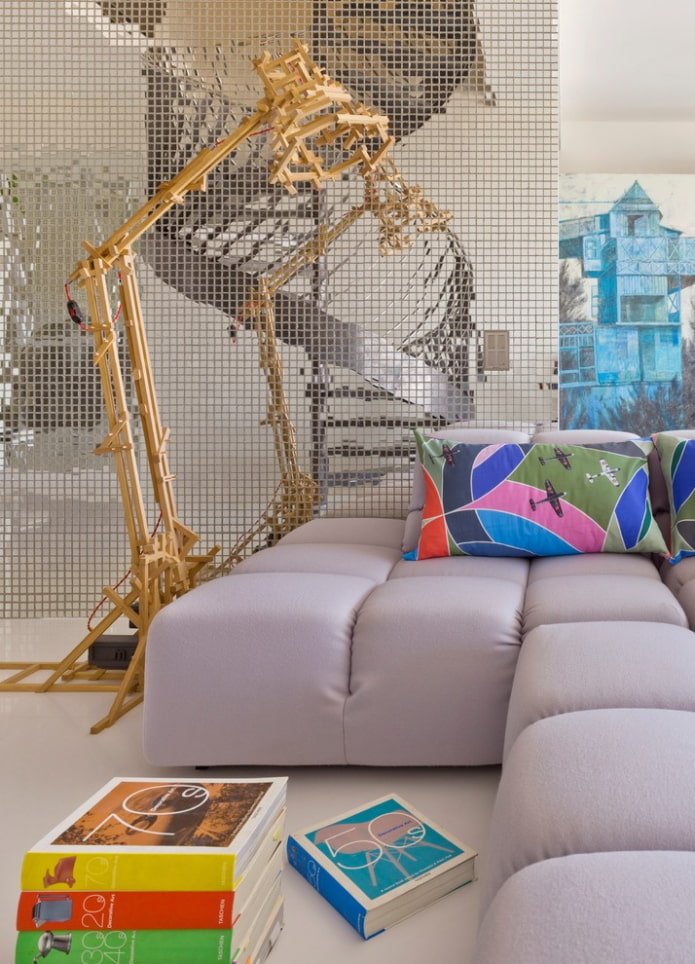
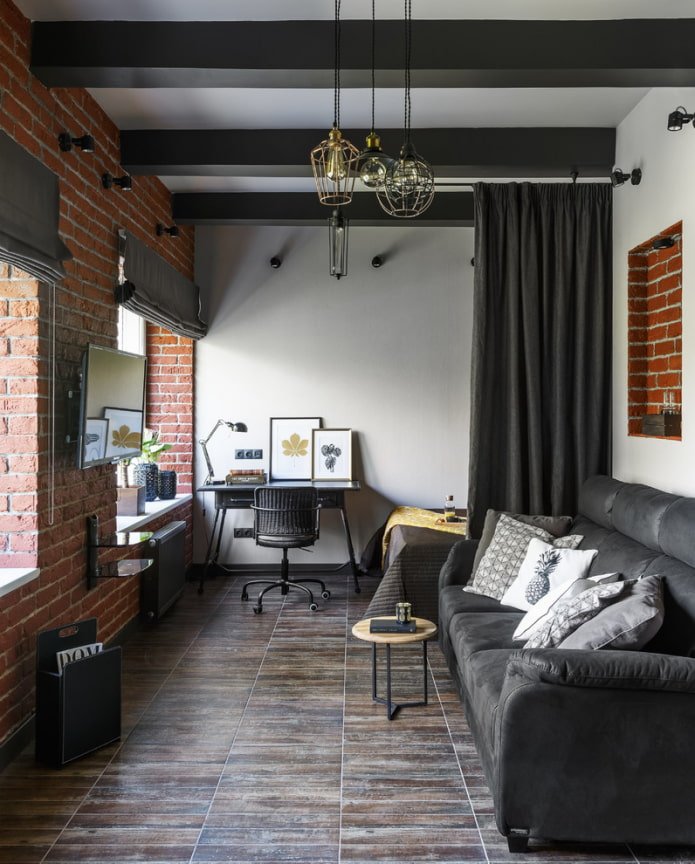
What tiles can be used in the hall?
Let’s consider the types of products that are suitable for finishing the floor and walls in the living room:
- Tiles/ceramic tiles. Consists of a mixture of clay, sand and minerals. During the production process, it is fired and glazed, which allows you to get any pattern on the surface and any texture. The most popular option.
- Porcelain stoneware. Ceramics pressed with granite chips. It has exceptional strength and resistance to high temperatures. Design diversity is also achieved by glazing the surface.
- Gypsum. An environmentally friendly material for high-quality imitation of brick or stonework on the walls of the living room. It is lightweight, and comes in a wide range of colors. Disadvantages: fragility of the material, instability to moisture, and a relief surface that accumulates dust.
- Clinker. It is considered an improved type of ceramics, as it has a more complex composition. Thanks to long-term firing and pressing, durable wear-resistant products of various shapes are obtained. Easy to install.
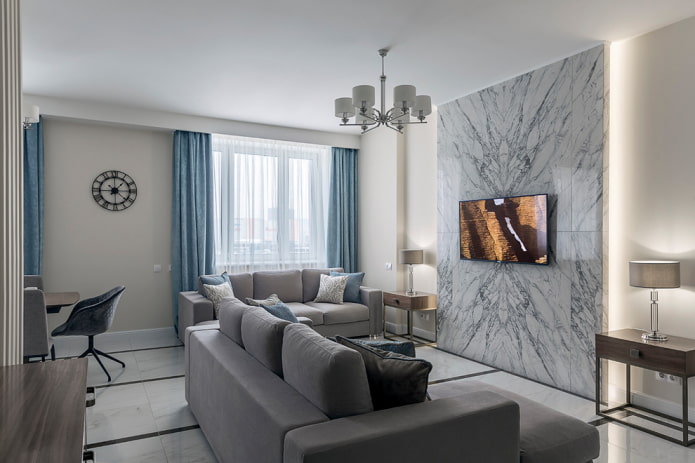
The photo shows a living room in neutral tones, where the TV area imitates a marble surface. This finish decorates the room and attracts attention.
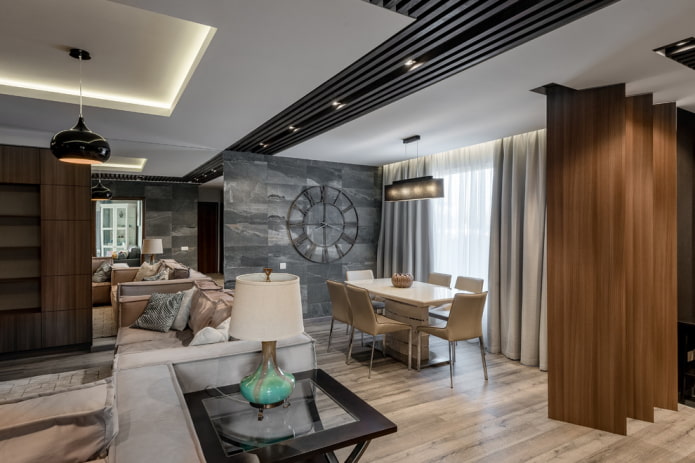
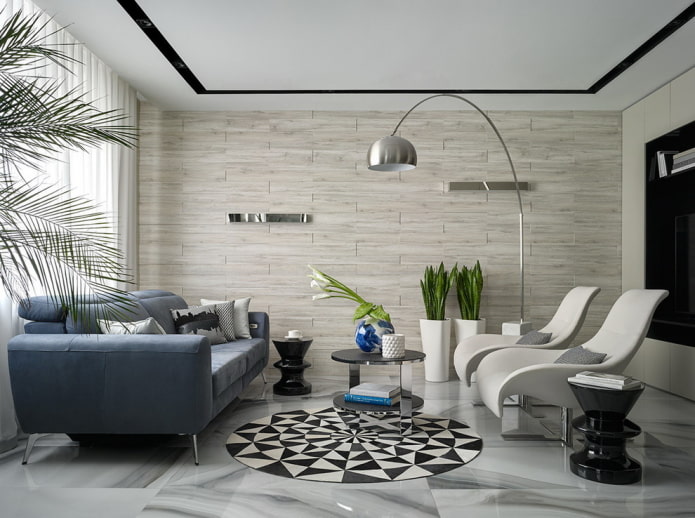
What can be tiled in the living room?
By functional purpose, there are floor, wall and decorative tiles.
Floor
Due to high traffic, the floor covering of the living room must be resistant to damage. For safe movement, an anti-slip matte or rough texture is necessary. If the living room is combined with the dining room, the products should be easy to clean.
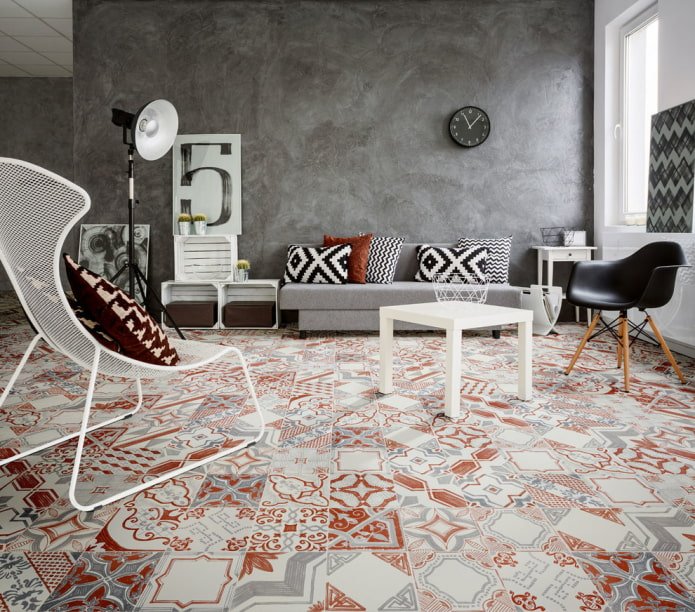
The photo shows a stylish living room with an unusual tiled floor. Shades of red add a nice touch of life to the neutral-toned interior.
Wall
For easy facing, wall tiles are lightweight. A fashionable trend is to decorate the wall in the form of a panel. Natural stone looks colorful in the living room interior.
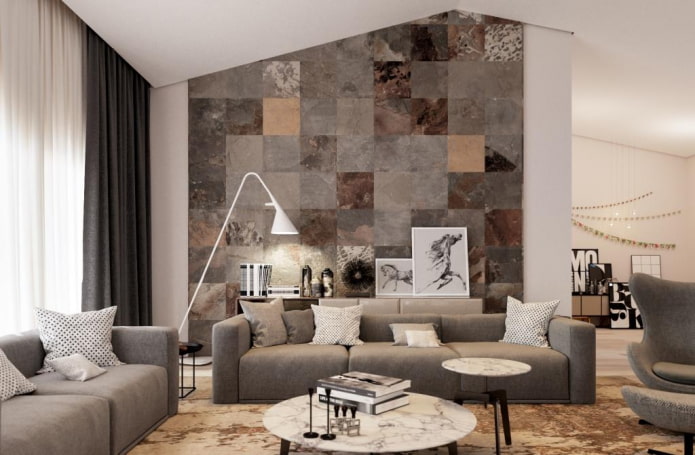
Niche
Facing a niche with ceramics is an original idea, as a result of which the wall in this area looks very impressive.
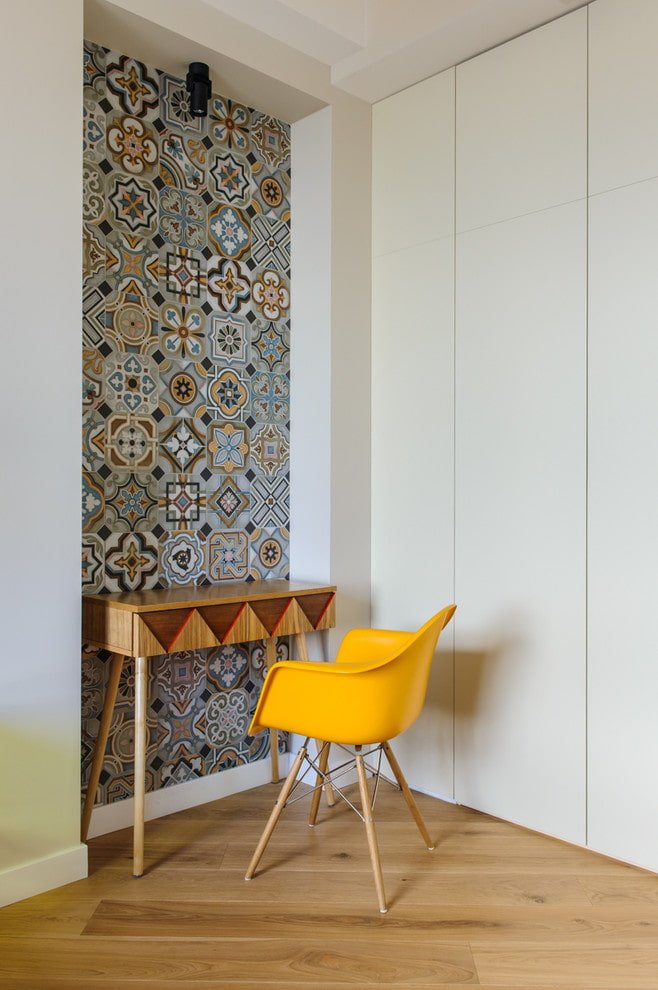
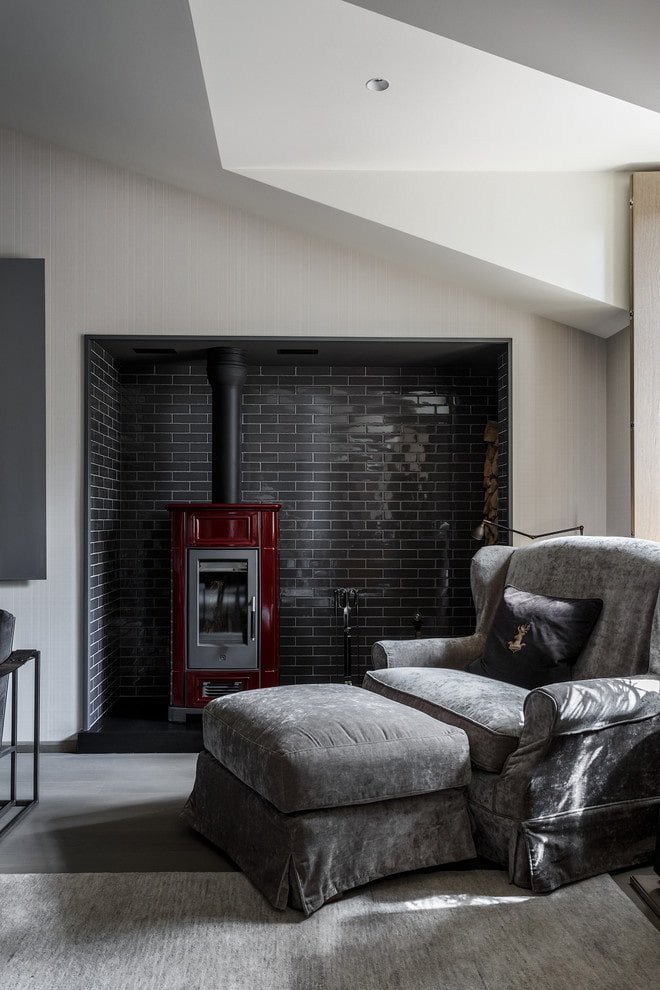
Fireplace
Due to its fire resistance, tiles are an ideal option for facing a fireplace. In addition, it gives off heat well, thereby increasing its efficiency.
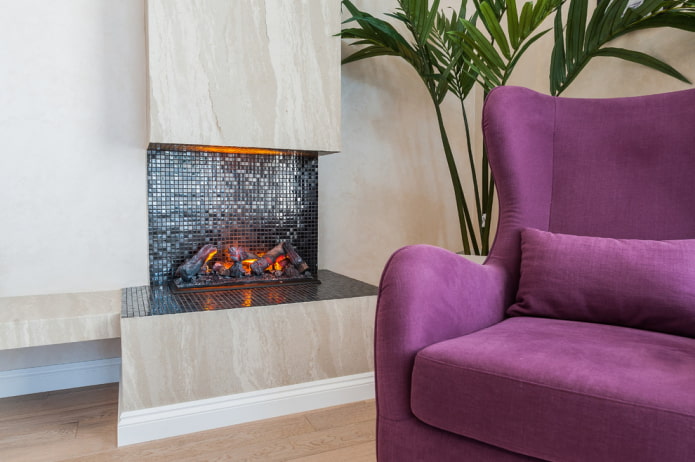
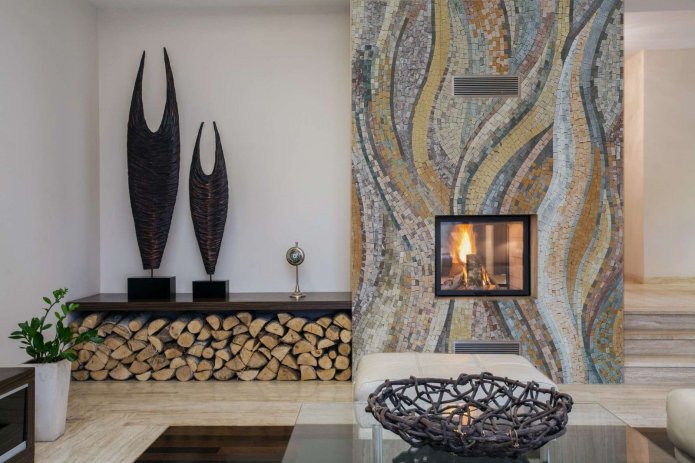
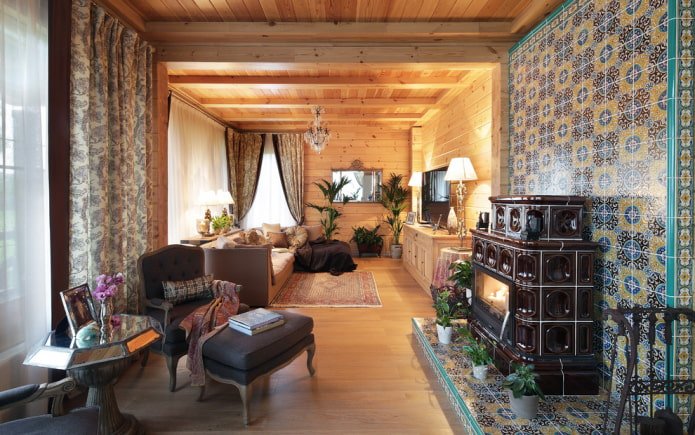
The photo shows a cozy dacha in rustic style. A fireplace with bright decor adds a special flavor to the interior.
Arch
Facing the opening with tiles imitating stone or brick can be called a classic. This is one of the most popular options for decorating an arch.
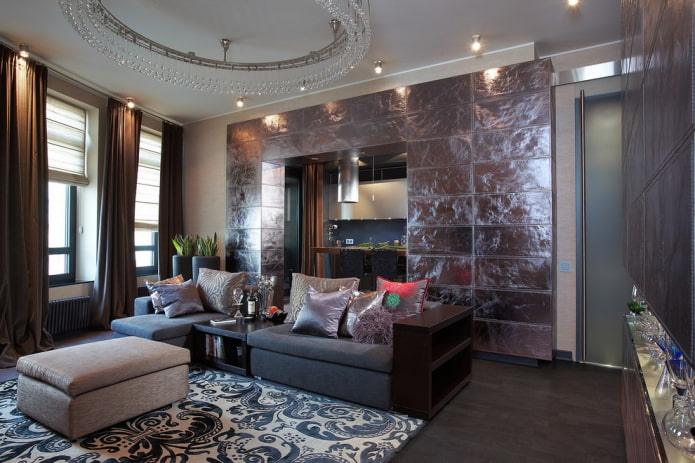
The photo shows a spacious living room, flowing into the kitchen with an arch lined with rectangular tiles.
Color palette
Since the range of ceramic coatings on the modern market is wide, the choice of color scheme in the living room depends only on the taste of its owner.
- For those who appreciate light interiors, white, gray, beige floor and wall tiles are suitable.
- Black color makes the space heavier, and it is also an impractical solution for the floor, since dirt and damage are clearly visible on it.
Today, manufacturers offer companion materials for wall decor: pre-selected shades and patterns will help professionally transform the interior of the living room.
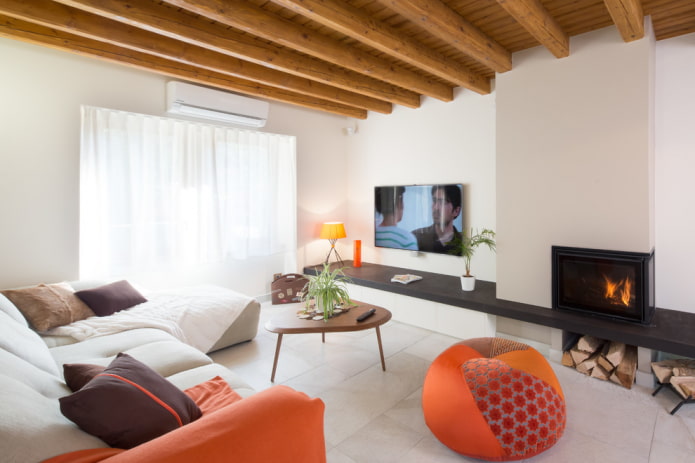
The photo shows a light living room with bright color accents. The “heavy” beam ceiling is successfully compensated by the white floor.
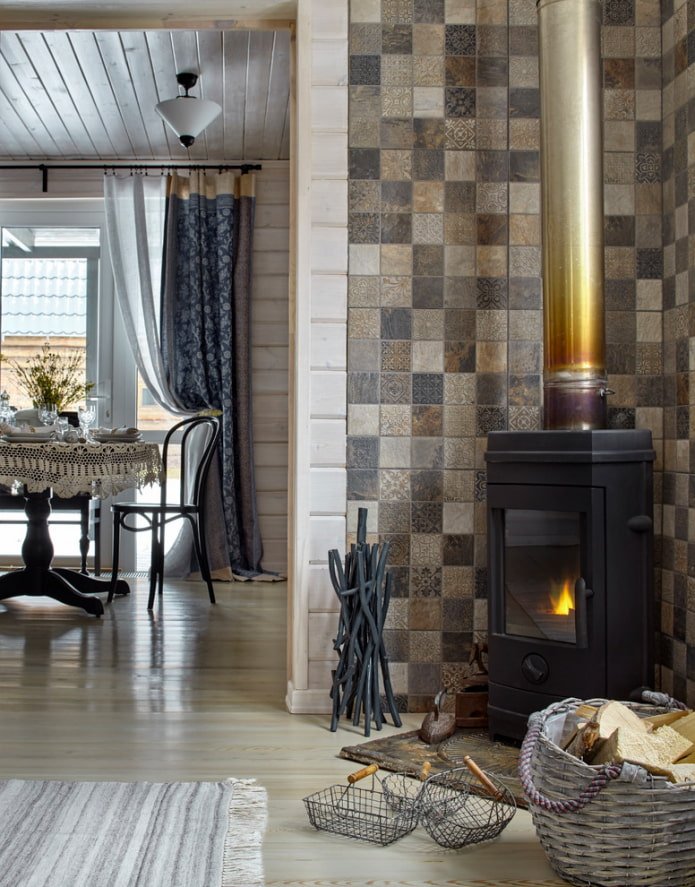
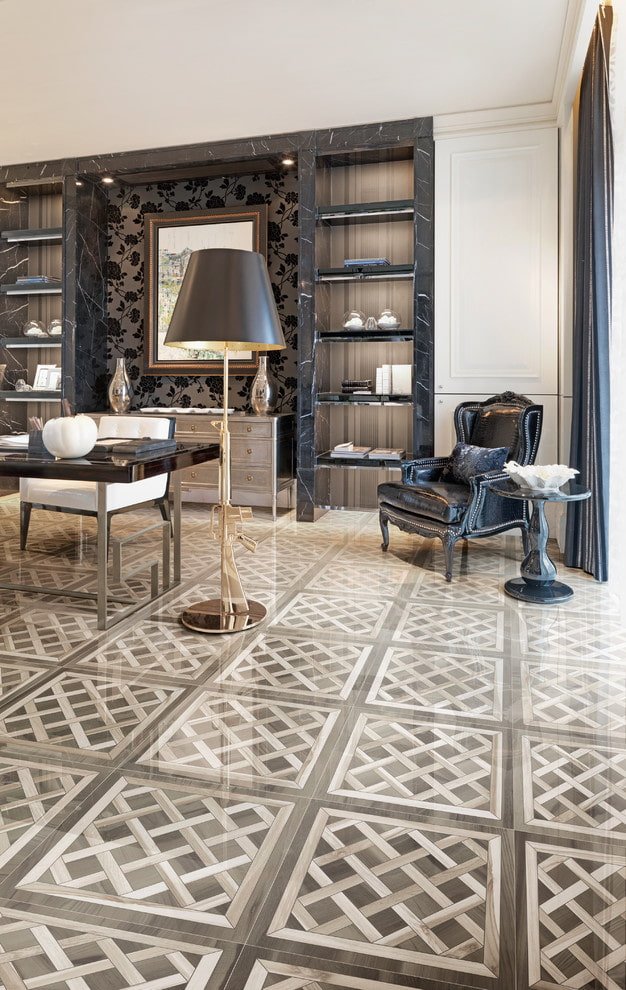
Terracotta flooring is suitable for a country house: such a floor looks natural and cozy.
Tiles of rich shades – yellow, red, green – will become a bright accent in the interior. To avoid overloading it, the rest of the decor should be selected in neutral tones.
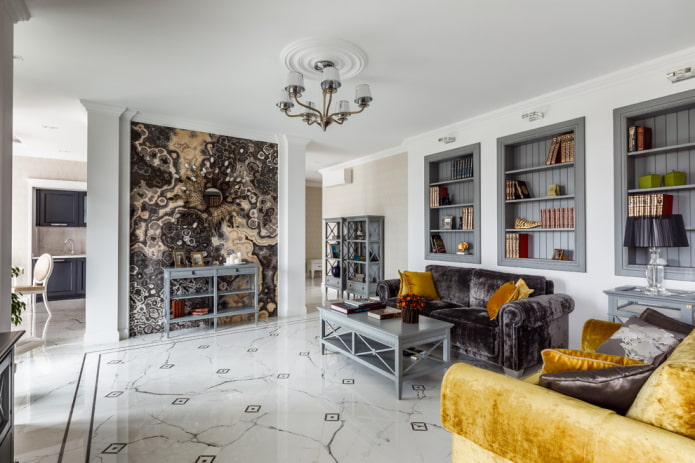
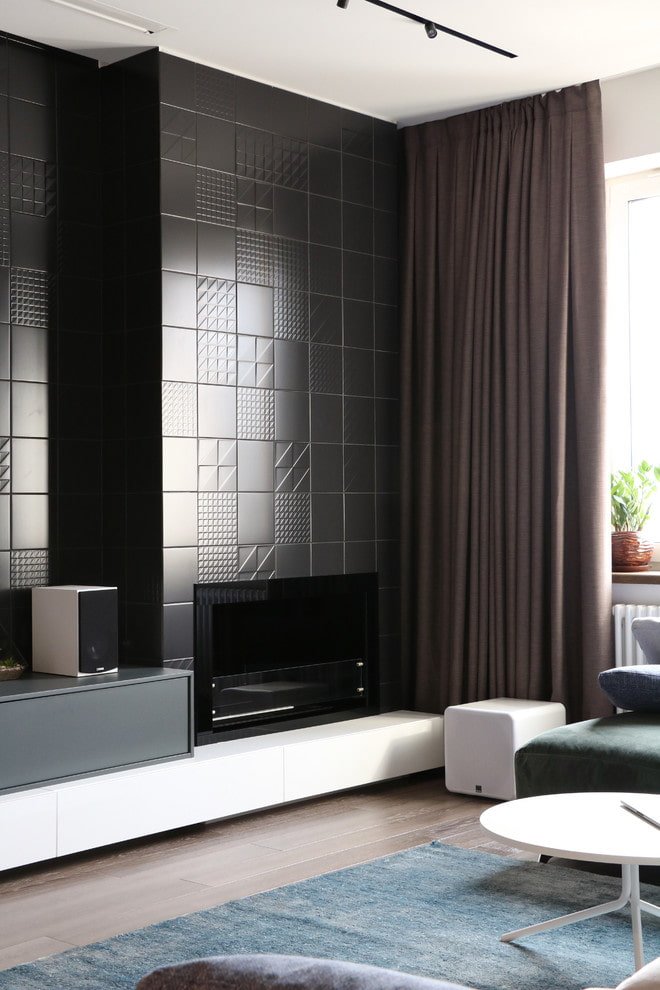
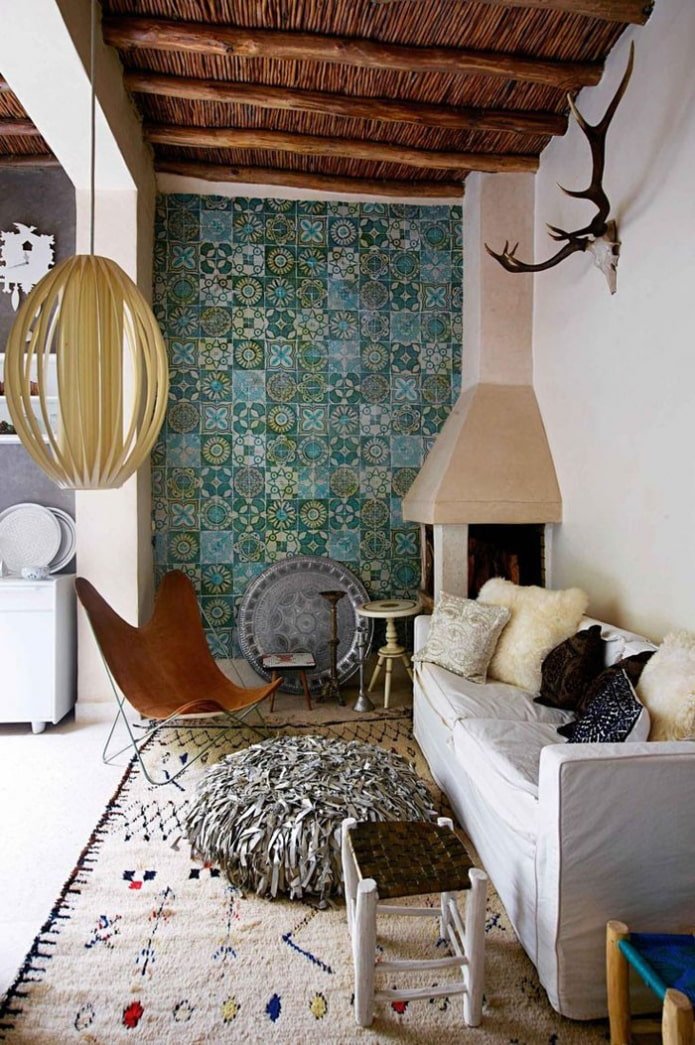
Tile layout examples
The most common type of tile is square. It can be laid in the classic way (“seam to seam”) or diagonally. Products of different sizes and patterns are successfully combined. To unusually play up the floor, tiles of the same shade are placed as a border instead of a baseboard. Long rectangular tiles are usually laid in a staggered pattern to imitate natural materials: wood or brick.
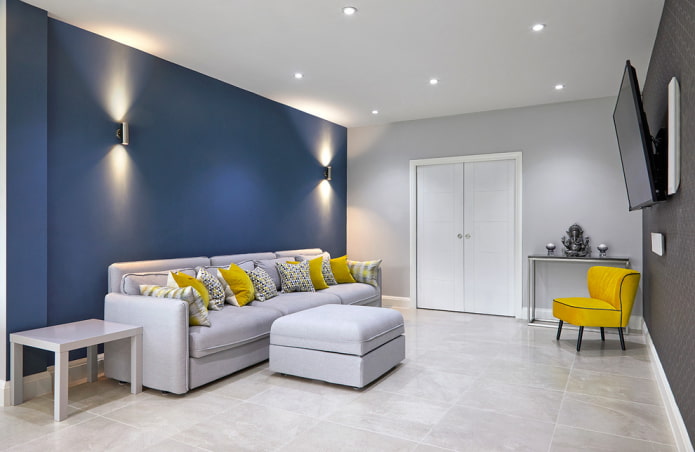
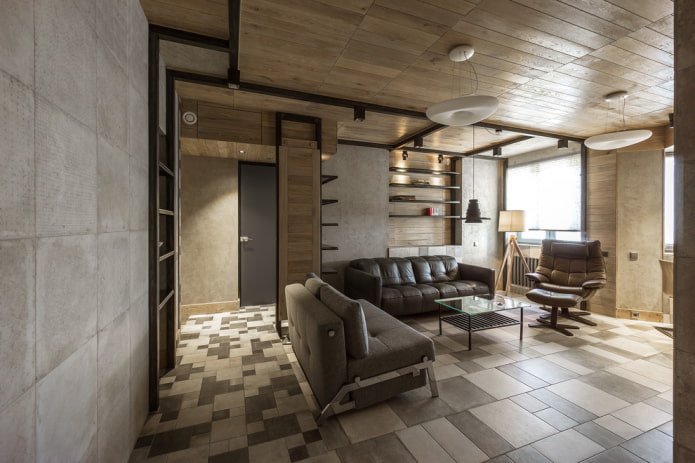
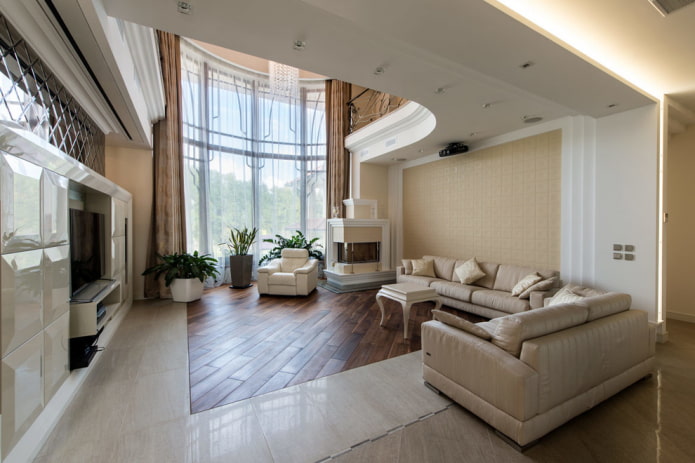
The photo shows an interior that combines several types of tiles. Figured and mirrored tiles decorate the walls. The contrasting wooden floor is framed with glossy porcelain stoneware.
Tile design
The varied shape, texture and shades of ceramic coatings allow the apartment owner to decorate the living room in any way.
To expand the space of the room and give it airiness, the walls are decorated with mirrored tiles. The “wood-like” coating will add a touch of naturalness and coziness to the decor. You can also combine tiles with laminate by cutting out a figured line and covering it with an elastic threshold. “Marble-like” products look great in the interior of the hall. Patterned designs are used to imitate carpeting.
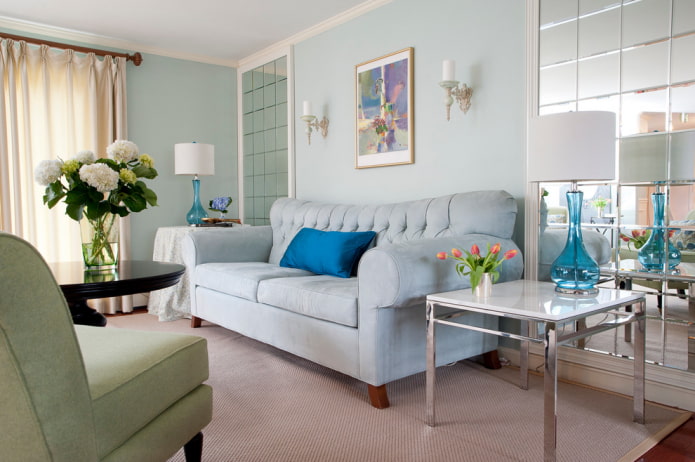
The photo shows an airy living room with sky-blue details. Mirror tiles emphasize the lightness of the decor and visually add space.
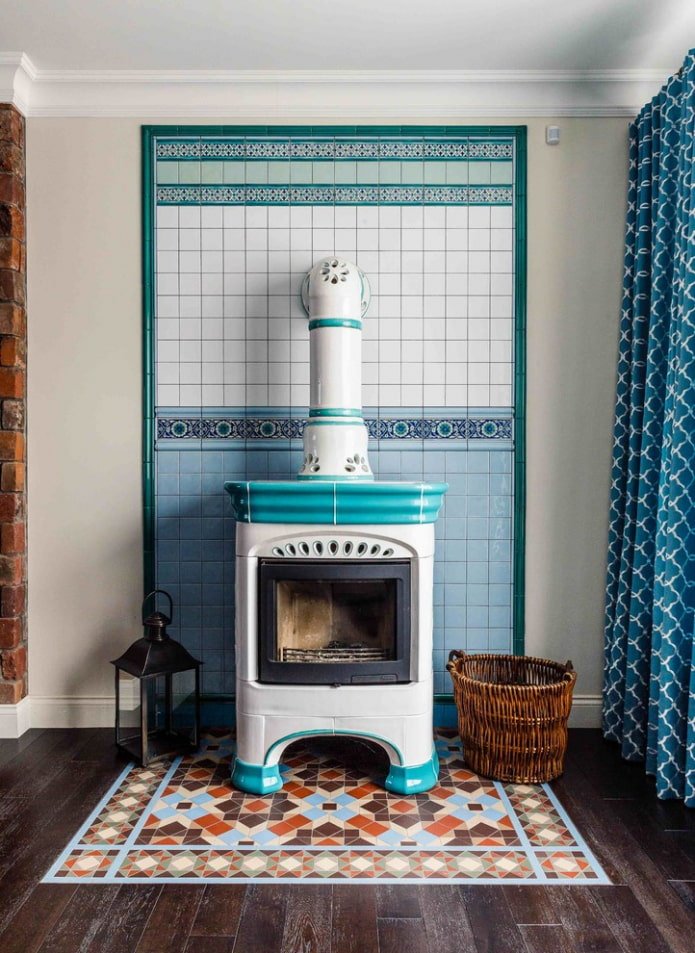
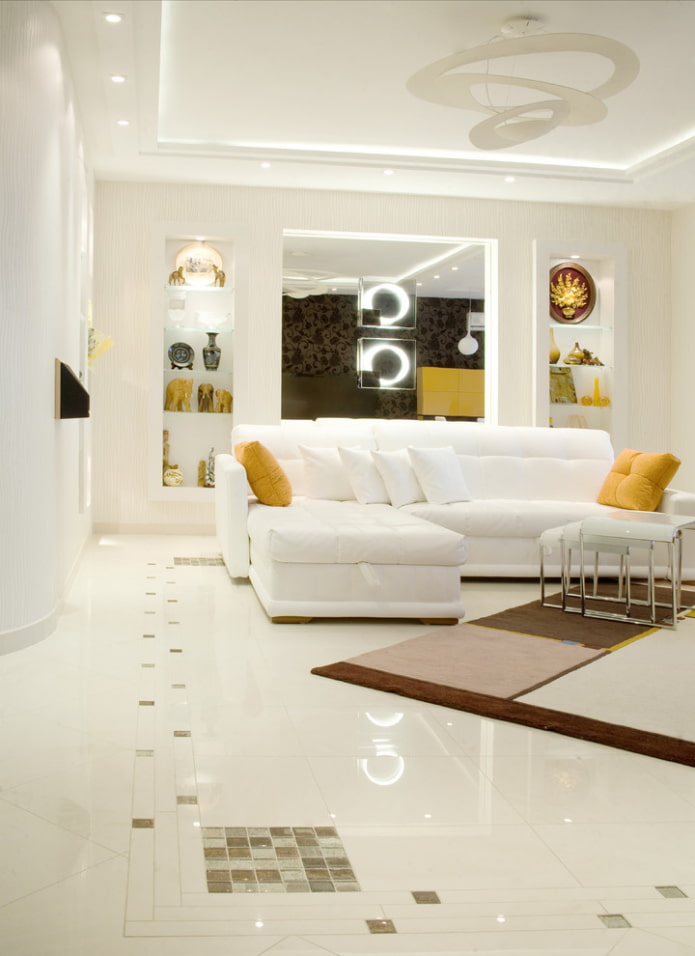
Country style lovers will like the option of cladding in the form of a panel of combined tiles of different colors. This technique is called patchwork.
The shape of tiles today is very diverse – designers offer not only squares and rectangles, but also diamonds, polyhedrons in the form of “honeycombs”, figured products with rounded elements.
With the help of tiles “under the stone” you can decorate the walls of the living room (both completely and partially), frame windows, columns and doorways. Mosaic is suitable for facing fireplaces, as well as decorating walls: it is recommended to place it in inserts so as not to overload the space.
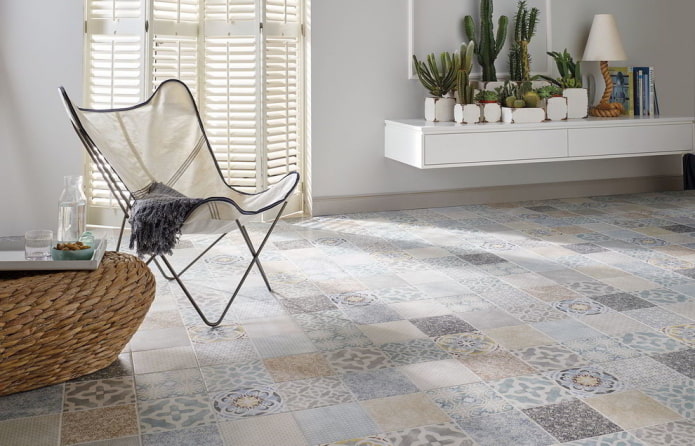
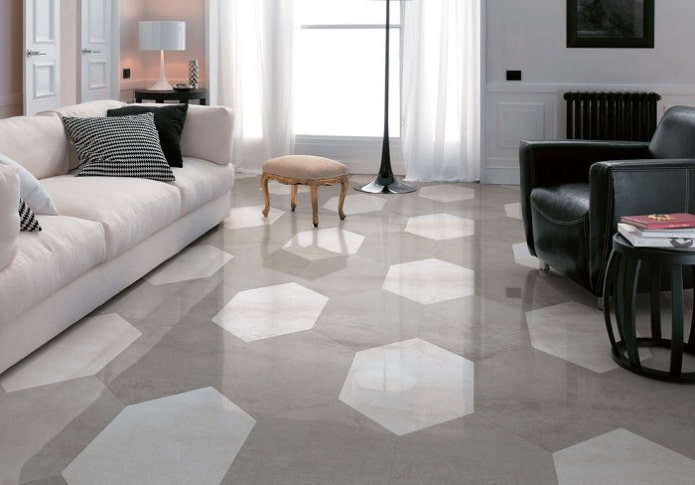
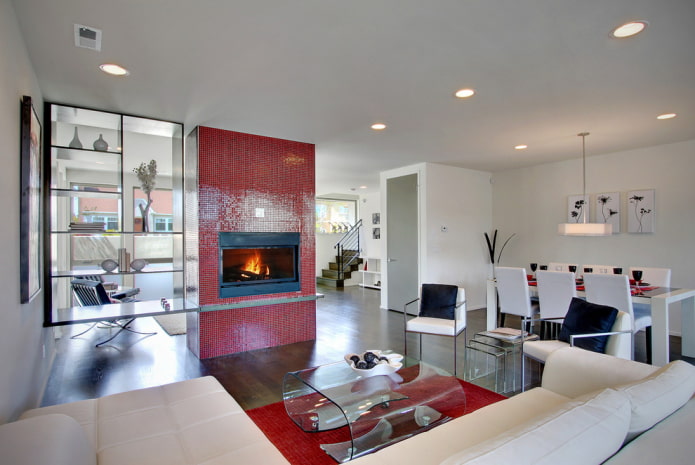
Kitchen-living room tiling ideas
If your apartment has a living room combined with a kitchen, tile flooring is the best option. A standard practical option is a kitchen apron. Recently, a rectangular “hog” has gained popularity: it looks good in any style.
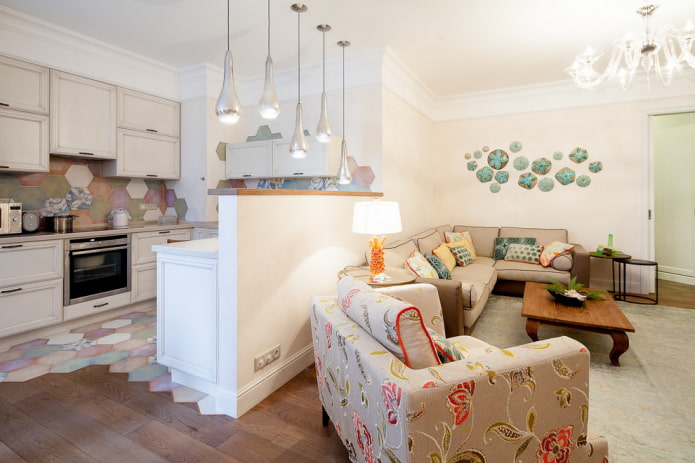
The photo shows a kitchen-living room decorated with hexagonal “honeycombs” in pastel colors. They protect not only the walls, playing the role of an apron, but also the floor.
Porcelain stoneware flooring in the kitchen area is a good idea for practical people. Wear-resistant porcelain stoneware will not wear out, absorb moisture and grease, or deteriorate under the influence of cleaning agents. Also, in a large room, tiles can be used to easily create zones.
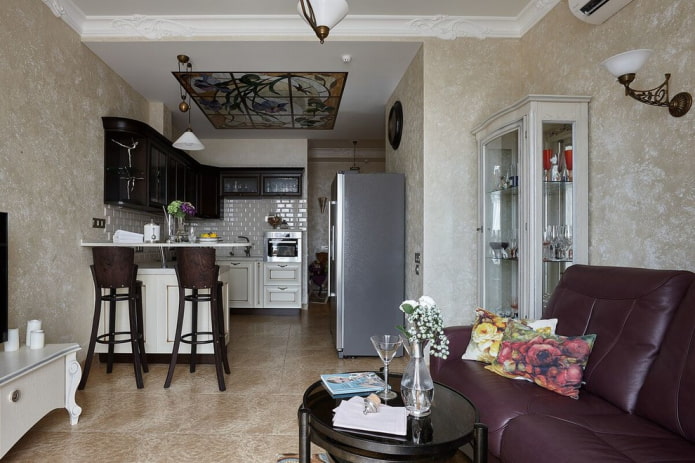
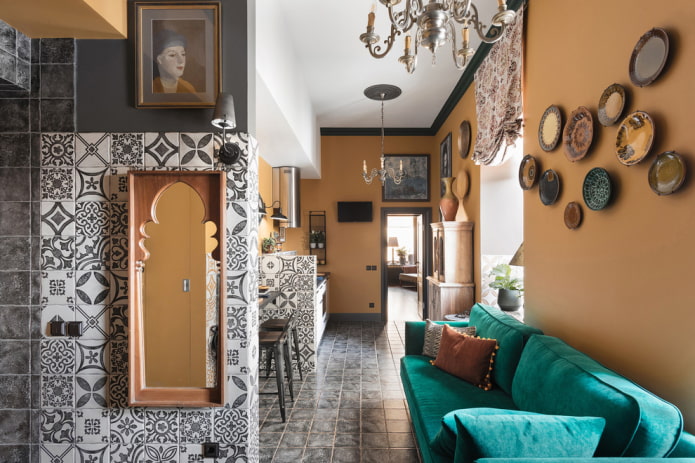
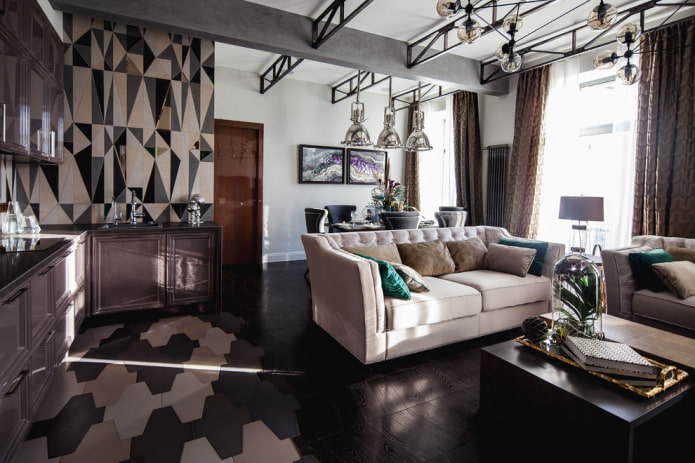
The photo shows a kitchen-living room, the zoning is by combining floor tiles of different colors and shapes.
Photos of living rooms in different styles
Living room tiles will fit well into the modern style. It is characterized by minimalism and clear lines. A single-color covering without pronounced patterns is suitable for the living room, which will serve as a background for the advantageous display of furniture and accessories.
The classic direction is the complete opposite of the modern one. The classic interior is replete with decorative details. Materials that emphasize the nobility and tranquility of this style are suitable for finishing: light colors, patterns, imitation “marble”. For the floor, a good solution would be a covering that imitates dark parquet.
French Provence is liked by people who strive for home comfort. Ceramics with a texture of stone and wood, as well as floral patterns or sketches of rural life, will help serve these purposes.
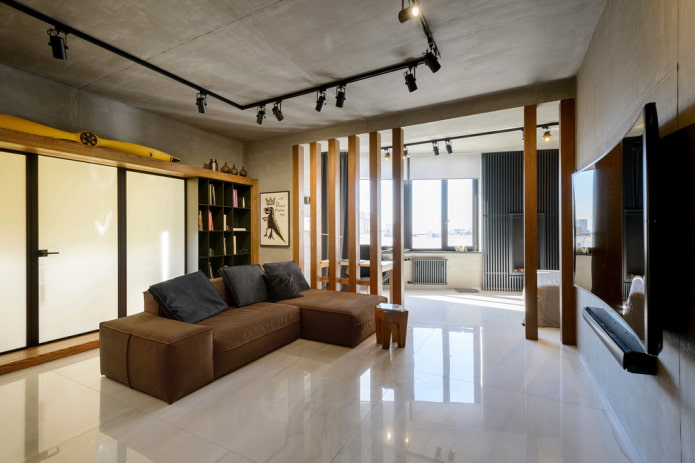
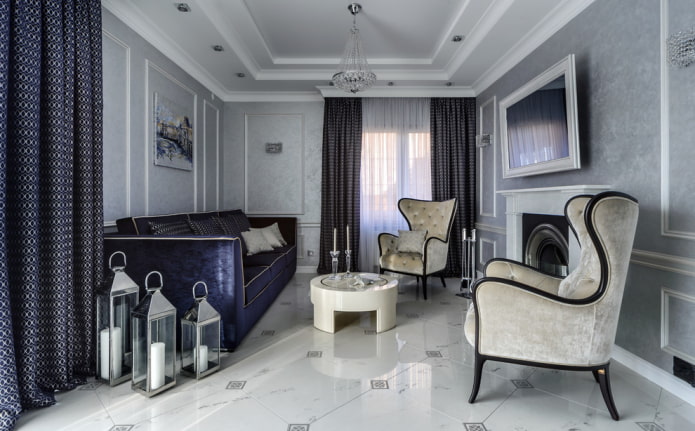
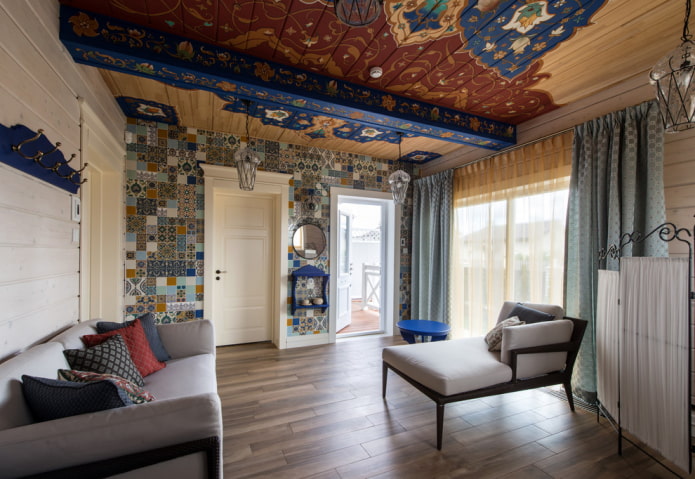
Tiles in the style of loft: imitation brickwork has become the hallmark of this style. Large ceramic rectangles of gray colors look original, convincingly imitating a wall of concrete blocks.
High-tech is characterized by functional details in design and geometric shapes. Its main idea is to reflect modern technologies in the interior. Rounded furniture and spotlights in combination with mirrored wall coverings will be an excellent solution for this style. 3D tiles with a three-dimensional pattern will fit in well.
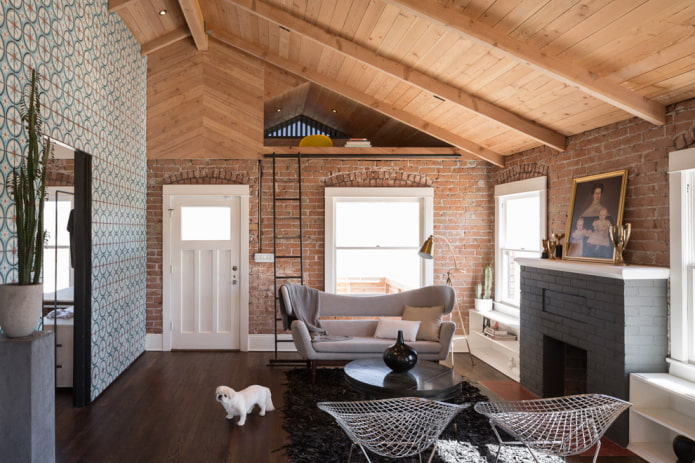
The photo shows a loft-style attic, boldly combining tiles with a pattern and imitation brick.
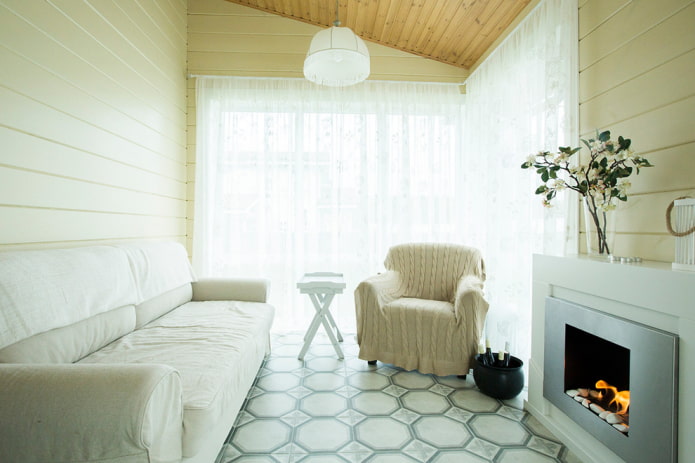
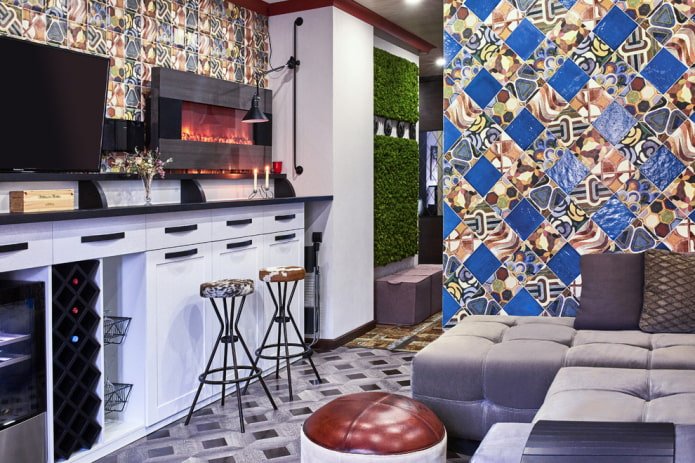
Now reading:
- Mirrors in the interior: 90+ photos and original ideas for different styles.
- Pros and cons of metal roofing: what should you know before buying?
- Elegant Mercedes CLS: A Fusion of Style and Performance
- Discover the All-New Mazda 2: A Perfect Urban Ride
- Make Your Own Storage Boxes: 8 Detailed Tutorials with Photos and Videos